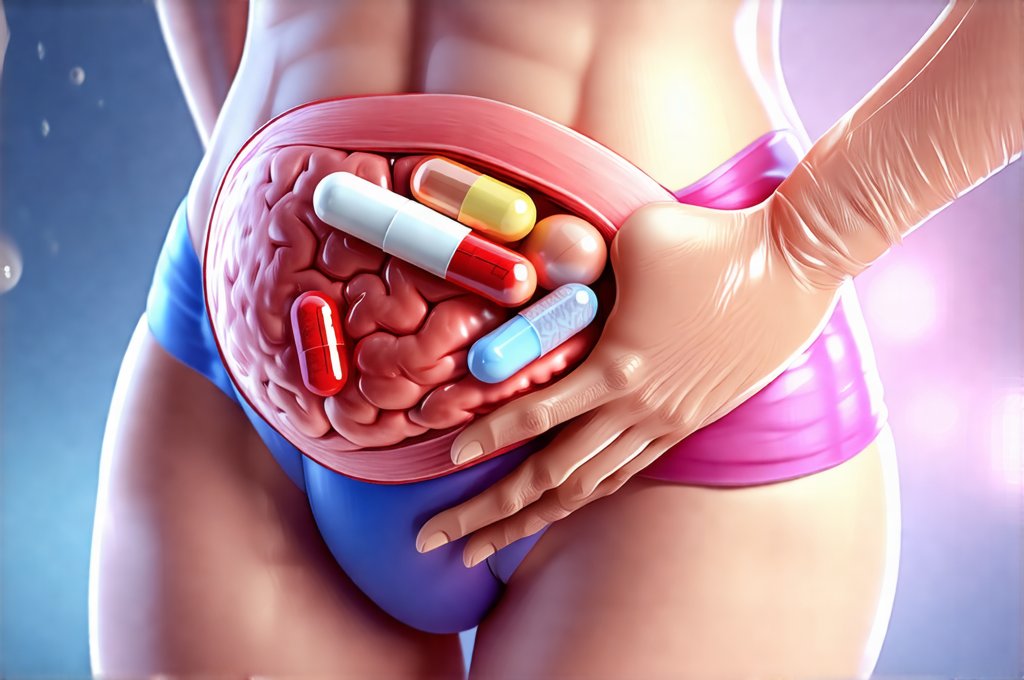Our bodies are remarkable machines, constantly working to maintain balance—a state known as homeostasis. This intricate system relies on a delicate interplay between various physiological processes, including our immune response. However, modern life often throws curveballs at this equilibrium – stress, poor diet, lack of sleep, and exposure to environmental toxins can all disrupt the body’s natural harmony. When faced with illness, we frequently turn to antibiotics, powerful medications designed to combat bacterial infections. While invaluable in many situations, overuse or inappropriate use of antibiotics can significantly burden our systems, leading to a cascade of unintended consequences and signaling that your body desperately needs a break. Recognizing these signals is crucial for restoring overall health and well-being.
Antibiotics aren’t without their side effects, even when prescribed appropriately. They don’t discriminate between harmful bacteria and the beneficial microbes that reside in our gut – the microbiome – essential for digestion, nutrient absorption, immune function, and mental health. Disrupting this delicate ecosystem can lead to a range of issues, from digestive upset to weakened immunity. Furthermore, repeated antibiotic use contributes to antibiotic resistance, making infections harder to treat in the future. Understanding how your body responds to antibiotics and recognizing the signs that it’s overwhelmed is vital for proactive self-care. This isn’t about rejecting antibiotics when necessary; it’s about being informed, mindful of their impact, and prioritizing recovery strategies when antibiotic use has taken a toll.
Recognizing the Signals: What Does an Antibiotic Overload Look Like?
The symptoms signaling your body needs a break from antibiotics aren’t always obvious. They can manifest in various ways, often mimicking other conditions, making it crucial to pay attention to subtle changes and patterns. One of the most common indicators is persistent digestive issues. This isn’t just about temporary diarrhea that sometimes accompanies antibiotic treatment; it’s about ongoing bloating, gas, constipation, or altered bowel habits even after finishing the medication. These symptoms suggest a disruption in your gut microbiome, which needs time to rebuild and re-establish its balance. Fatigue, beyond what you’d expect from being sick, is another red flag. If you find yourself feeling consistently drained, lacking energy, even with adequate rest, it could be a sign that your body’s resources are depleted. Finally, watch for signs of a compromised immune system – frequent colds, infections, or slow wound healing all point to an overburdened and weakened defense mechanism.
These symptoms aren’t necessarily immediate; they can develop gradually over time with repeated antibiotic use. It’s important to remember that everyone reacts differently. Some individuals are more resilient than others, but consistent exposure to antibiotics will eventually impact even the healthiest systems. The key is to be observant of your body’s signals and respond accordingly, rather than dismissing them as minor inconveniences. A holistic approach focusing on rebuilding gut health, supporting immune function, and minimizing further stress is essential for recovery. If you are concerned about your bladder after antibiotic use, it may be time to explore signs your bladder needs medical attention.
Supporting Your Body’s Recovery: Beyond Rest
Simply stopping antibiotics isn’t always enough to restore balance; active support is needed to help your body recover. Prioritizing a nutrient-dense diet is paramount. Focus on whole, unprocessed foods – fruits, vegetables, lean proteins, and healthy fats – that provide the building blocks for repair and rebuilding. Include fermented foods like yogurt (with live cultures), kefir, sauerkraut, and kimchi, which introduce beneficial bacteria to your gut. Consider incorporating prebiotic-rich foods such as garlic, onions, leeks, asparagus, and bananas to feed existing good bacteria. Hydration is also crucial – drink plenty of water throughout the day to flush out toxins and support optimal cellular function.
Beyond diet, stress management plays a vital role in recovery. Chronic stress suppresses immune function and hinders healing. Implement relaxation techniques like meditation, deep breathing exercises, yoga, or spending time in nature. Prioritize sleep – aim for 7-9 hours of quality sleep each night to allow your body to repair and rejuvenate. In some cases, professional guidance from a healthcare practitioner specializing in gut health or functional medicine may be beneficial to create a personalized recovery plan tailored to your specific needs. Remember that rebuilding takes time and consistency; it’s not a quick fix but a long-term investment in your overall well-being. It’s also important to remember what not to eat while recovering from a UTI, as this can further irritate the system.
Rebuilding Your Gut Microbiome: A Targeted Approach
The gut microbiome is central to antibiotic recovery. Antibiotics indiscriminately kill both good and bad bacteria, leaving the gut vulnerable and imbalanced. Probiotic supplementation can help repopulate beneficial bacteria, but it’s important to choose a high-quality probiotic with diverse strains specifically suited for post-antibiotic restoration. Look for probiotics containing strains like Lactobacillus and Bifidobacterium, known for their role in digestive health and immune support. However, probiotics aren’t a one-size-fits-all solution; different strains have different effects.
Beyond supplementation, focus on prebiotic foods to nourish the existing good bacteria and encourage their growth. Prebiotics are essentially food for probiotics, helping them thrive and multiply. A diet rich in fiber from fruits, vegetables, and whole grains also supports a healthy gut microbiome. Consider a short-term elimination diet to identify potential food sensitivities that may be exacerbating digestive symptoms. Working with a registered dietitian or nutritionist can help you create a personalized dietary plan tailored to your specific needs and sensitivities.
Strengthening Immune Resilience: A Holistic Strategy
Antibiotics weaken the immune system by disrupting the gut microbiome, which plays a critical role in immunity. To bolster your body’s defenses, prioritize sleep – aim for 7-9 hours of quality sleep each night, as this is when your immune system does much of its repair work. Manage stress through relaxation techniques like meditation, yoga, or spending time in nature. Regular exercise, moderate intensity, can also help boost immune function by improving circulation and reducing inflammation.
Vitamin D deficiency is common and linked to weakened immunity. Get your vitamin D levels checked and supplement if necessary, especially during winter months when sunlight exposure is limited. Consider incorporating immune-boosting foods into your diet, such as citrus fruits (rich in Vitamin C), ginger, garlic, and turmeric. Adaptogenic herbs like ashwagandha and rhodiola may also help support the body’s ability to cope with stress and enhance resilience. If you suspect a more serious complication, it’s important to be aware of warning signs from a kidney stone.
Minimizing Future Antibiotic Use: A Proactive Approach
The best way to avoid antibiotic overload is to minimize unnecessary use. This begins with preventative measures – practicing good hygiene, getting vaccinated against preventable illnesses, and maintaining a healthy lifestyle. If you do need antibiotics, discuss alternatives with your doctor, such as watchful waiting for mild infections or exploring natural remedies when appropriate (under medical guidance). Never pressure your doctor to prescribe antibiotics if they don’t believe it’s necessary.
If an antibiotic is unavoidable, complete the full course as prescribed, even if you start feeling better before finishing, to ensure complete eradication of the infection and prevent resistance. After completing a course of antibiotics, prioritize gut health restoration strategies (as outlined above) to minimize long-term consequences. Finally, be mindful of your overall health and well-being – a strong immune system is the best defense against illness. By taking proactive steps to protect your health and reduce reliance on antibiotics, you can support your body’s natural resilience and maintain optimal health for years to come. Consider if you should take a break from supplements after a stone has passed.





















